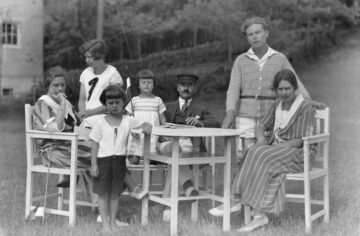Costică Brădăţan in Commonweal:
 When history is about to take an abrupt turn, is there something in people’s eyes or in their secret longings that pre-announces it somehow—and that minds of a particular cast (poets and visionaries or perhaps psychiatrists) can read clearly and even put into words? If the world were to end next year, who would know about it today, and how? When we look back on the past, we say sometimes that there were “clear signs” that this or that event would happen, that the “writing was on the wall.” But how many of these signs were really there, and how many are projected back by hindsight? The problem is of special importance to historians. How can the historian single out a past event, focus on it exclusively, and pretend not to know what came after? How can a scholar fake ignorance?
When history is about to take an abrupt turn, is there something in people’s eyes or in their secret longings that pre-announces it somehow—and that minds of a particular cast (poets and visionaries or perhaps psychiatrists) can read clearly and even put into words? If the world were to end next year, who would know about it today, and how? When we look back on the past, we say sometimes that there were “clear signs” that this or that event would happen, that the “writing was on the wall.” But how many of these signs were really there, and how many are projected back by hindsight? The problem is of special importance to historians. How can the historian single out a past event, focus on it exclusively, and pretend not to know what came after? How can a scholar fake ignorance?
Florian Illies doesn’t answer these difficult questions, but he does something even better: he takes them further, complicates and deepens them, and in so doing points to their unanswerability. In 1913: The Year before the Storm, he transports us to a point in time when history was about to make such a dramatic turn. We know that now, but those he writes about—artists, writers, politicians, philosophers—did not and could not. They lived their lives as innocently as we live ours and could not have cared less about the state of the world, dancing blindly on the edge of a volcano.
More here.
Enjoying the content on 3QD? Help keep us going by donating now.
